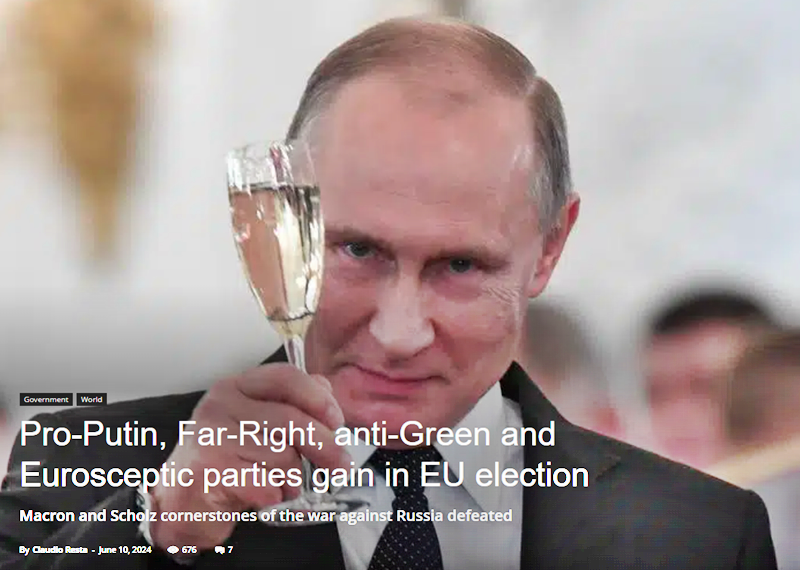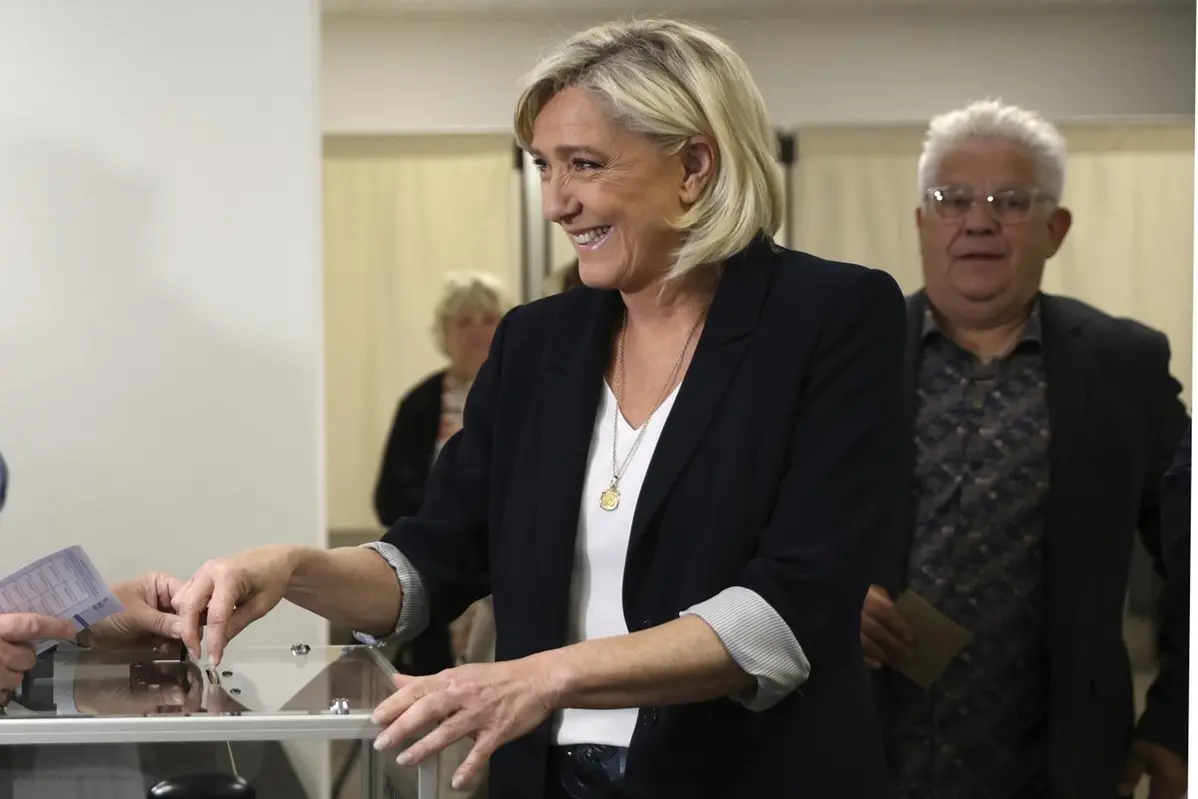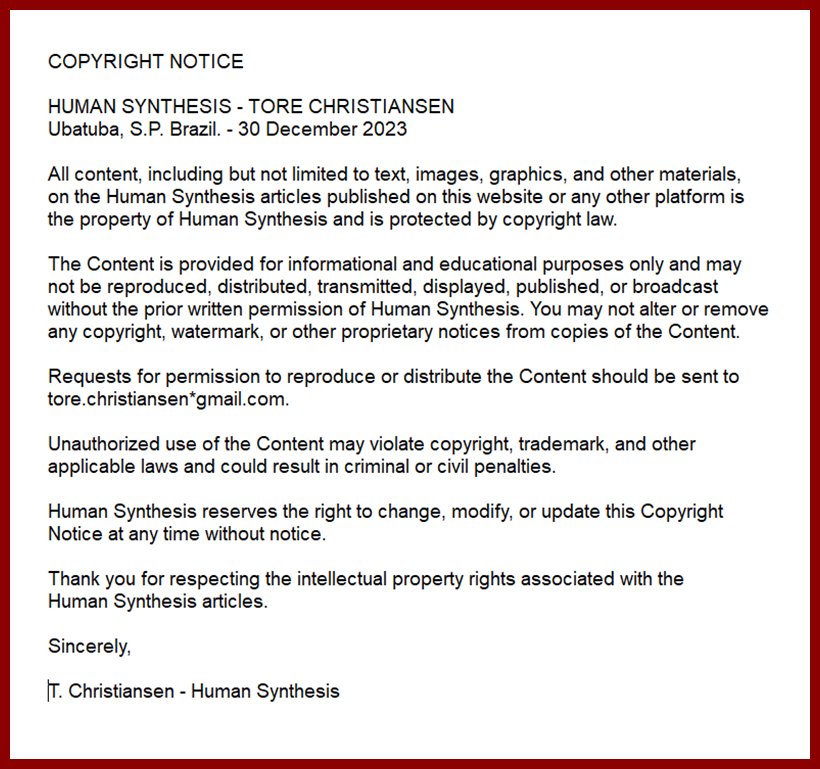Pro-Putin, Far-Right, anti-Green and Eurosceptic parties gain in EU election

By VT - Claudio Resta - June 10, 2024
Finally the People of Europe made their voice heard against that of the leaders driven by Washington, the WEF and the lobbies…
Far-right and Eurosceptic parties made gains in elections to the European Parliament on Sunday, prompting a bruised French President Emmanuel Macron to call a shock election and adding uncertainty to Europe’s future political direction.While the centre, liberal and green parties are set to retain the balance of power in the 720-seat parliament, the vote dealt a domestic blow to the leaders of both France and Germany, raising questions about how the European Union’s major powers can drive policy in the block. Making a risky gamble in a bid to seek to reestablish his authority, Macron called a parliamentary election, with the first round on June 30.
Like Macron, German Chancellor Olaf Scholz also endured a painful night where his Social Democrats scored their worst result ever, suffering at the hands of the mainstream conservatives and hard right Alternative for Germany (AfD).A rightwards shift within the European Parliament may make it tougher to pass new legislation that might be needed to respond to security challenges, the impact of climate change or industrial competition from China and the United States.
French President Emmanuel Macron rolled the dice on his political future on Sunday, calling snap legislative elections for later this month after he was trounced in the European Union vote by Marine Le Pen’s far-right party.Macron’s shock decision set off a political earthquake in France, offering the far-right a shot at real political power after years on the sidelines and threatening to neuter his presidency three years before it ends.

If Le Pen’s National Rally (RN) party wins a parliamentary majority, Macron would be left with little sway over domestic affairs.Macron said the EU result was grim for his government, and one he could not ignore. In an address to the nation, less than two months before Paris hosts the Olympics, he said lower house elections would be called for June 30, with a second-round vote on July 7.“This is an essential time for clarification,” Macron said. “I have heard your message, your concerns and I will not leave them unanswered …France needs a clear majority to act in serenity and harmony.”
Led by telegenic 28-year-old Jordan Bardella, the RN won about 32% of the vote in Sunday’s vote, more than double the Macron ticket’s 15%, according to exit polls.The Socialists came within a whisker of Macron, with 14%. Le Pen, widely seen as the frontrunner for the 2027 election in which Macron is unable to stand, welcomed his decision. “We are ready to take over power if the French give us their trust in the upcoming national elections,” she said at a rally.
Macron’s Renaissance party currently has 169 lower house lawmakers, out of a total of 577. The RN has 88. If the RN wins a majority, Macron would still direct defense and foreign policy, but would lose the power to set the domestic agenda, from economic policy to security.
“Emmanuel Macron is a poker player, we’ve seen that tonight,” said Green Party lawmaker Sandrine Rousseau.Macron’s gambit has echoes of Spanish Prime Minister Pedro Sanchez’s move to call a snap national election last year after the far right thrashed his party in local government polls. Sanchez managed to retain power but only after months of wrangling with regional parties and a controversial deal to offer an amnesty to Catalan separatists.France has known so-called “cohabitation” periods before, when the president is from a different political party than the parliamentary majority.
In such cases, the majority party’s prime minister becomes France’s top domestic decision-maker.In the last such period, from 1997-2002, President Jacques Chirac played second fiddle to Socialist Prime Minister Lionel Jospin.The euro slipped to its lowest level in around a month in early trading in Asia, reflecting the uncertainty. Jan Von Gerich, the chief market analyst for Nordea in Helsinki, said the snap election “is a new source of uncertainty, which should have some negative impact on economic and market confidence, at least in France.
”Macron’s decision underlined what was a grim night for centrist parties across Europe, with Eurosceptic nationalists making the biggest gains in the European Parliament vote.Polish Prime Minister Donald Tusk, a fellow centrist, said Macron “had no choice but to dissolve the parliament.”“This is a lesson for us,” he added.

The far-right Alternative for Germany (AfD) shrugged off a string of scandals to take second place in Sunday’s EU election, making gains in particular among the young, while Chancellor Olaf Scholz’s Social Democrats scored their worst result ever.The AfD’s strong showing comes as Germany’s party landscape undergoes its biggest upheaval in decades, with new populist parties vying to take space vacated by the shrinking mainstream parties that have dominated since reunification in 1990.
This looks set to make it much harder to establish parties to form workable coalitions after elections in three eastern German states in September and at federal level next year.The rise of populism is also coarsening the political climate, say analysts.
The campaign was overshadowed by a surge in violence against politicians and activists.The AfD was plagued by scandals in recent months with its lead candidate having to step back from campaigning in May after declaring that the SS, the Nazis’ main paramilitary force, were “not all criminals”.One of his aides was charged with spying for China and another candidate faced charges of receiving bribes from a pro-Russian news portal.
The AfD also faced nationwide mass anti-extremism protests and rivalry from a new populist party, the Sahra Wagenknecht Alliance (BSW), that was founded in January and that is also anti-establishment while advocating a more left-wing economic policy.The eurosceptic party nevertheless won a record 16.2% of the vote on Sunday, according to an exit poll published by state broadcaster ARD at 1958 CET (1758 GMT).That was 5.2 percentage points more than in the last EU election in 2019 and more than all three parties in Scholz’s coalition.

‘BRUSSELS BUREAUCRACY’The AfD gained ground among younger voters, up 12 percentage points to 17% among 16-24 year olds, tying with the conservatives for most popular party in that age group, and in the former Communist East.“We’ve done well because people have become more anti-European,” the AfD’s co-leader Alice Weidel said on Sunday,“People are annoyed by so much bureaucracy from Brussels,” she added, giving a plan ultimately to ban CO2-emitting cars as an example.
The results were in line with an expected broader shift rightwards for the European Parliament across the bloc of 450 million citizens.

The AfD has tapped into frustrations with Scholz’s coalition, support for which it has plunged since it took office in late 2021 and immediately had to contend with multiple challenges, ranging from the Ukraine war and rising irregular migration to a cost of living crisis.
Just a week before the election, a policeman was stabbed and killed at an anti-Islam rally by an Afghan man who was not living legally in Germany, an incident which shocked Germany and could have boosted the showing for the anti-migration AfD.Germany’s Greens were the biggest loser on Sunday, falling 8.6 percentage points to 11.9%, according to the ARD exit poll, punished by voters for the cost of policies to reduce CO2 emissions – in line with expectations for environmental parties across Europe.
Scholz’s Social Democrats (SPD) and the third coalition partner, the pro-business Free Democrats (FDP) also did poorly, expected to win 14% and 5% of the vote respectively, down from 15.8% and 5.4% in the last election.The conservatives, who are in opposition at federal level, were forecast to come first, rising slightly to 30.2%.

Claudio Resta
Claudio Resta was born in Genoa, Italy in 1958, he is a citizen of the world (Spinoza), a maverick philosopher, and an interdisciplinary expert, oh, and an artist, too.
VT Condemns the ETHNIC CLEANSING OF PALESTINIANS by USA/Israel
$ 280 BILLION US TAXPAYER DOLLARS INVESTED since 1948 in US/Israeli Ethnic Cleansing and Occupation Operation; $ 150B direct "aid" and $ 130B in "Offense" contracts
Source: Embassy of Israel, Washington, D.C. and US Department of State.
